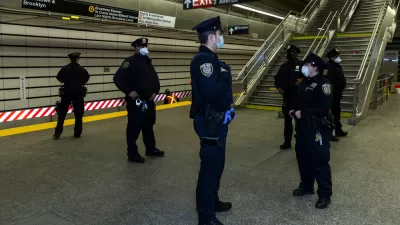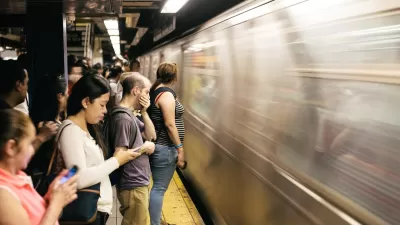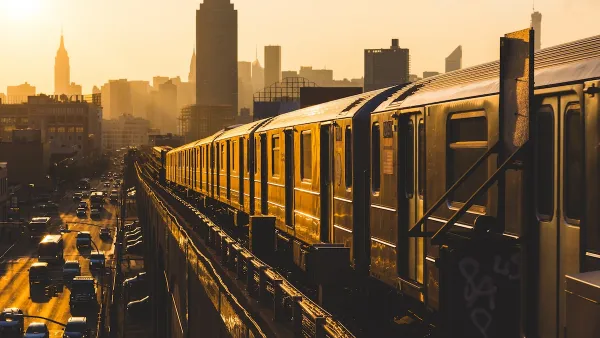When women don’t feel safe using transit, they use other modes and end up paying the price.

A new report from New York University’s Rudin Center for Transportation says women in New York City travel differently because of harassment and safety concerns on public transit and, as a result, spend more on monthly travel than men.
When women choose to use alternative travel modes, particularly at night, the added cost results in a “pink tax,” according to the report. Researchers found the median extra travel cost ranged from $26 to $50 a month.
“The cost burden falls even more heavily on people who take care of children—and research suggests that about three-quarters of the people doing that today are mothers,” reports Aarian Marshall. In addition to the challenges of traveling with children or elderly relatives, caregivers spend an additional $26 to $50 on travel.
“The most worrying question is this: What opportunities are women missing because they can’t get around the city safely or cheaply?” asks Marshall. The report offers various recommendations, including improved transit and for-hire vehicle safety, better training for first responders, and more women in leadership positions in transit agencies.
FULL STORY: THE PINK TRANSIT TAX: WOMEN SPEND MORE THAN MEN TO GET AROUND NYC

Maui's Vacation Rental Debate Turns Ugly
Verbal attacks, misinformation campaigns and fistfights plague a high-stakes debate to convert thousands of vacation rentals into long-term housing.

Planetizen Federal Action Tracker
A weekly monitor of how Trump’s orders and actions are impacting planners and planning in America.

In Urban Planning, AI Prompting Could be the New Design Thinking
Creativity has long been key to great urban design. What if we see AI as our new creative partner?

King County Supportive Housing Program Offers Hope for Unhoused Residents
The county is taking a ‘Housing First’ approach that prioritizes getting people into housing, then offering wraparound supportive services.

Researchers Use AI to Get Clearer Picture of US Housing
Analysts are using artificial intelligence to supercharge their research by allowing them to comb through data faster. Though these AI tools can be error prone, they save time and housing researchers are optimistic about the future.

Making Shared Micromobility More Inclusive
Cities and shared mobility system operators can do more to include people with disabilities in planning and operations, per a new report.
Urban Design for Planners 1: Software Tools
This six-course series explores essential urban design concepts using open source software and equips planners with the tools they need to participate fully in the urban design process.
Planning for Universal Design
Learn the tools for implementing Universal Design in planning regulations.
planning NEXT
Appalachian Highlands Housing Partners
Gallatin County Department of Planning & Community Development
Mpact (founded as Rail~Volution)
City of Camden Redevelopment Agency
City of Astoria
City of Portland
City of Laramie





























